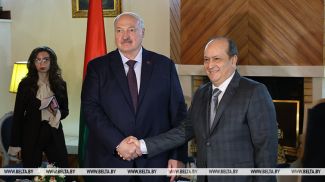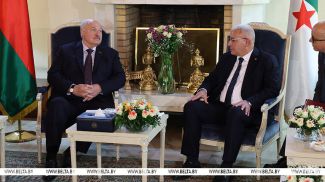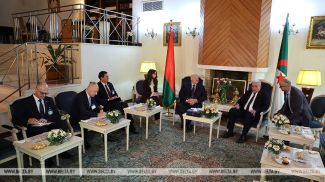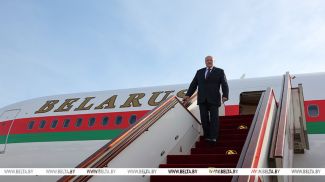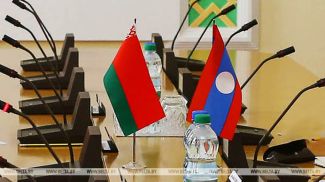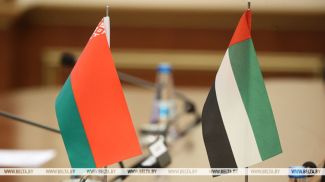
MINSK, 20 October (BelTA) — Belarusian President Aleksandr Lukashenko has been presented with a book about the historical ties between Belarus and the Republic of Mordovia of the Russian Federation. The book was gifted to the president by Head of the Republic of Mordovia Artem Zdunov on 20 October, BelTA has learned.
The publication's full title is “Republic of Belarus - Republic of Mordovia: A Shared History, A Shared Destiny”. This catalog compiles documents from the period of the Great Patriotic War of 1941-1945, held in the Central State Archive of Mordovia.
During the war, 10,000 people, as well as seven orphanages housing 1,150 children, were evacuated from Belarus to this Russian region.
The publication includes lists and information about the evacuees, including children and orphanages, as well as decrees and telegrams concerning the patronage aid provided by districts of Mordovia to the city of Gomel and four districts of Gomel Oblast. It also contains photographs of soldiers from Mordovia who fought for the liberation of the Belarusian SSR.
It is possible that some of the documentary facts in the book could inspire creative professionals to develop a film script and shoot a movie. After all, behind every fact recorded in these documents lie thousands of human destinies and life stories, among which there are surely some worthy of being immortalized on film. During a meeting with the head of Mordovia at the Independence Palace, Belarusian President Aleksandr Lukashenko also pointed to this, proposing to develop cooperation in cinematography. “In the Belarusian-Russian direction, we can find many common themes from history that would be very useful for us as well,” the head of state stressed.
This is especially relevant as Mordovia is now focused on actively developing its film industry and television production. The region boasts many interesting filming locations that are in demand (several feature films have been shot there in the past year) and Mordovia recently joined the Cinema of Russia project, intending to create all the necessary conditions to bring its film industry to a new level.
“You know how to do this. We would be very interested in an exchange of experience and personnel support. We are now paying great attention to cinematography,” the Belarusian leader said.
During the war, 10,000 people, as well as seven orphanages housing 1,150 children, were evacuated from Belarus to this Russian region.
The publication includes lists and information about the evacuees, including children and orphanages, as well as decrees and telegrams concerning the patronage aid provided by districts of Mordovia to the city of Gomel and four districts of Gomel Oblast. It also contains photographs of soldiers from Mordovia who fought for the liberation of the Belarusian SSR.
It is possible that some of the documentary facts in the book could inspire creative professionals to develop a film script and shoot a movie. After all, behind every fact recorded in these documents lie thousands of human destinies and life stories, among which there are surely some worthy of being immortalized on film. During a meeting with the head of Mordovia at the Independence Palace, Belarusian President Aleksandr Lukashenko also pointed to this, proposing to develop cooperation in cinematography. “In the Belarusian-Russian direction, we can find many common themes from history that would be very useful for us as well,” the head of state stressed.
This is especially relevant as Mordovia is now focused on actively developing its film industry and television production. The region boasts many interesting filming locations that are in demand (several feature films have been shot there in the past year) and Mordovia recently joined the Cinema of Russia project, intending to create all the necessary conditions to bring its film industry to a new level.
“You know how to do this. We would be very interested in an exchange of experience and personnel support. We are now paying great attention to cinematography,” the Belarusian leader said.




